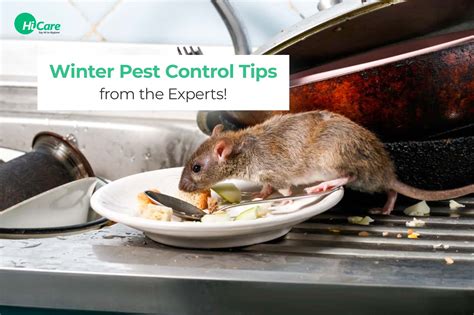Winter Pest Control for Apartment Dwellers: A Comprehensive Guide
Winter's chill might seem like a time when pests disappear, but many insects and rodents seek refuge indoors, making apartment pest control crucial during this season. This comprehensive guide addresses common winter pest problems and offers effective solutions for apartment residents. Remember, always check your lease agreement before undertaking any pest control measures yourself.
Why Winter is Prime Time for Indoor Pests
Unlike the warmer months when food sources are abundant outdoors, winter forces pests to seek shelter and sustenance within your apartment building. The combination of limited food options outside and the warmth provided by heated apartments creates an ideal breeding ground for unwelcome guests.
Common Winter Apartment Pests
Several pests thrive in the winter apartment environment. Let's explore the most prevalent:
Rodents (Mice & Rats): These persistent invaders seek warmth, food, and water, often entering through cracks and crevices in walls, pipes, or around windows. Their droppings can contaminate food and surfaces, posing health risks.
Cockroaches: While less active in winter, cockroaches are still a concern. They can survive in heated spaces and often congregate near water sources and food scraps. Their presence is a serious health hazard due to the potential spread of bacteria and allergens.
Spiders: Certain spiders seek indoor shelter during winter. While most are harmless, their presence can be unsettling.
Insects: Overwintering insects like cluster flies may enter your apartment in large numbers seeking warmth. These flies are not usually a health threat but are incredibly annoying.
H2: How to Prevent Winter Pests in Your Apartment
Proactive measures are key to effective winter pest control.
Eliminate Food Sources: Store food properly in airtight containers, clean up spills immediately, and regularly empty trash cans. Don’t leave pet food out overnight. A clean apartment is a less appealing environment for pests.
Seal Entry Points: Inspect your apartment for cracks and gaps in walls, windows, doors, and pipes. Caulk or seal any openings to prevent pests from entering. Pay attention to areas around utility lines.
Maintain Cleanliness: Regularly vacuum and mop floors, wipe down countertops, and clean under appliances. A clean environment is less attractive to pests.
Control Moisture: Repair leaky pipes and faucets promptly. Excess moisture attracts pests and can contribute to mold growth, another potential problem.
Proper Garbage Disposal: Ensure your garbage is disposed of properly and regularly. Overfilled bins and overflowing trash chutes provide ideal environments for pests to thrive.
H2: What to Do if You Already Have a Pest Problem
If you discover pests in your apartment, take immediate action.
Identify the Pest: Accurately identifying the pest is crucial in determining the most effective control method.
Contact Your Landlord/Management: Most leases require landlords to address pest problems. Report the infestation to your landlord or building management immediately. Provide photographic evidence if possible. Document all communication.
Temporary Measures (with Landlord Permission): While waiting for professional treatment, you can take temporary measures (always obtain permission first): Use sticky traps for insects or rodents, set up humane rodent traps, and maintain impeccable cleanliness.
H2: What are some natural pest control methods for apartments?
While professional pest control is often necessary, some natural methods can be used as supplementary measures, but should not replace professional intervention:
- Diatomaceous earth: This powder can dehydrate insects. Apply sparingly and carefully, as it's not suitable for pets.
- Essential oils: Certain essential oils, such as peppermint and tea tree oil, can repel some insects. However, their effectiveness varies.
- Vinegar: White vinegar's acidity can deter some insects. However, use carefully to avoid damaging surfaces.
Important Note: Always follow the instructions on any pest control product you use.
H2: Are there specific winter pest issues for apartments in different climates?
Yes, climate significantly affects the types of pests encountered. Colder climates might see an influx of cluster flies, while warmer climates might experience more persistent cockroach or rodent problems. Understanding your local climate will help you target preventative measures more effectively.
H2: How often should I check for pests in my apartment during winter?
Regular inspections, at least once a week, are advisable. Pay close attention to areas like kitchens, bathrooms, and storage spaces.
This guide provides a comprehensive overview of winter pest control in apartments. Remember, prevention is key, and prompt action is crucial if an infestation occurs. Always prioritize communication with your landlord or property management to ensure a safe and pest-free living environment.

